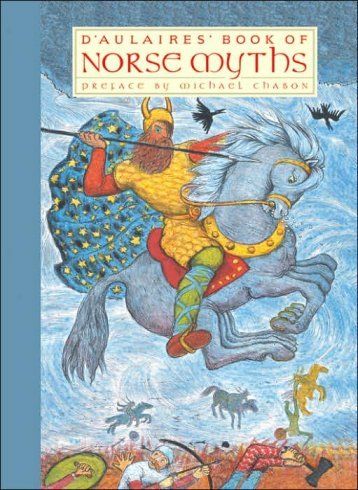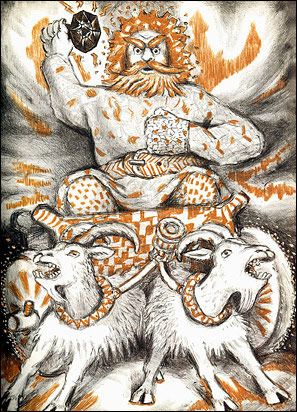Edmond Dantès
Dantès the White

A thread to discuss one of the greatest of all the ancient lores and one of the main sources of inspiration behind many modern day fantasy stories, not to mention the likes of Tolkien.
Key books to read




Read: Poetic Edda
Read: Prose Edda
Read: Völsunga saga
The Sagas are split into categories:
Kings' Sagas
Family Sagas (Sagas of Icelanders)The older version of Íslendingabók by Ari fróði, ca. 1125, lost.
Hryggjarstykki by Eiríkr Oddsson, ca. 1150, lost.
Historia Norvegiæ, ca. 1170.
Historia de Antiquitate Regum Norwagiensium by Theodoricus monachus, ca. 1180.
Skjöldunga saga, ca. 1180, badly preserved.
Oldest Saga of St. Olaf, ca. 1190, mostly lost.
Ágrip af Nóregskonungasögum, ca. 1190.
A Latin Óláfs saga Tryggvasonar by Oddr Snorrason, ca. 1190, survives in translation.
A Latin Óláfs saga Tryggvasonar by Gunnlaugr Leifsson, ca. 1195, lost.
Sverris saga, by Karl Jónsson, ca. 1205.
Legendary Saga of St. Olaf, ca. 1210.
Morkinskinna, ca. 1220 but before Fagrskinna.
Fagrskinna, ca. 1220.
Óláfs saga helga by Styrmir Kárason, ca. 1220, mostly lost.
Böglunga sögur, ca. 1225.
Separate Saga of St. Olaf, by Snorri Sturluson, ca. 1225.
Heimskringla by Snorri Sturluson, ca. 1230.
Knýtlinga saga, probably by Ólafr Þórðarson, ca. 1260.
Hákonar saga Hákonarsonar, by Sturla Þórðarson, ca. 1265.
Magnúss saga lagabœtis, by Sturla Þórðarson, ca. 1280, only fragments survive.
Hulda-Hrokkinskinna, ca. 1280.
Óláfs saga Tryggvasonar en mesta, ca 1300.
Legendary saga (Fornaldarsaga)Bandamanna saga
Bárðar saga Snæfellsáss
Bjarnar saga Hítdœlakappa
Brennu-Njáls saga - considered by some the greatest of Icelandic prose sagas
Droplaugarsona saga
Egils saga Skalla-Grímssonar - tells of the adventures of Egill Skalla-Grímsson, the warrior-poet and adventurer
Eiríks saga rauða
Eyrbyggja saga
Færeyinga saga
Finnboga saga ramma
Fljótsdæla saga
Flóamanna saga
Fóstbrœðra saga (two versions)
Gísla saga Súrssonar, (two versions) of an outlaw poet.
Grettis saga
Grœnlendinga saga
Gull-Þóris saga
Gunnars saga Keldugnúpsfífls
Gunnlaugs saga ormstungu
Hallfreðar saga (two versions)
Harðar saga ok Hólmverja
Hávarðar saga Ísfirðings
Heiðarvíga saga
Hrafnkels saga
Hrana saga hrings (post-medieval)
Hænsna-Þóris saga
Kjalnesinga saga
Kormáks saga
Króka-Refs saga
Laurentius Saga
Laxdæla saga
Ljósvetninga saga (three versions)
Njáls saga
Reykdœla saga ok Víga-Skútu
Svarfdœla saga
Valla-Ljóts saga
Vatnsdœla saga
Víga-Glúms saga
Víglundar saga
Vápnfirðinga saga
Þorsteins saga hvíta
Þorsteins saga Síðu-Hallssonar
Þórðar saga hreðu
Ölkofra saga
OthersÁns saga bogsveigis
Ásmundar saga kappabana - A saga based on the German Lay of Hildebrand.
Bósa saga ok Herrauðs - like Beowulf it has Geatish heroes.
Egils saga einhenda ok Ásmundar berserkjabana
Eireks saga víðförla
Frá Fornjóti ok hans ættmönnum
Friðþjófs saga ins frœkna
Gautreks saga
Gríms saga loðinkinna
Göngu-Hrólfs saga
Hálfdanar saga Brönufóstra
Hálfdanar saga Eysteinssonar
Hálfs saga ok Hálfsrekka - A Norwegian legend, the hero of which is compared to Hrólf Kraki.
Hervarar saga ok Heiðreks - a saga which may be of Swedish origin containing Swedish, Geatish and Gothic heroes. This saga still serves as a source for Swedish historians.
Hjálmþés saga ok Ölvis
Hrólfs saga Gautrekssonar - A saga about a Swedish warrior princess who is won by a Geatish prince.
Hrólfs saga kraka; A saga which is related to the Old English poem Beowulf.
Hrómundar saga Gripssonar
Illuga saga Gríðarfóstra A saga of the more traditional fairy tale kind, where a young man delivers a troll woman and her beautiful daughter from a curse.
Ketils saga hœngs
Orvar-Odd's saga (two versions)
Ragnars saga loðbrókar (two versions) - We know that the hero of this legend has existed in real life and he conquered Paris and may be the most famous of the Vikings.
Sturlaugs saga starfsama - A prequel to Göngu-Hrólfs Saga.
Sögubrot af fornkonungum - A remnant of a larger work dealing with the Swedish and Danish kings of old.
Sörla saga sterka
Völsunga saga - The Scandinavian version of Nibelungenlied.
Yngvars saga víðförla - A late saga of Swedish origin, which takes place in the 11th century and the historic basis of which is indisputable thanks to the fact that there are corroborating historic sources.
Þorsteins saga Víkingssonar
Grœnlendinga saga
The þættir
The Sagas of Knights
A list of the Viking Gods
Aegir – beer, gold, hospitality, sea & water.
Baldur – light, wisdom & wisdom.
Bil – destiny & weaving.
Bragi - knowledge.
Eir – healing, medicine & women.
Forseti – justice & peace
Frey – fertility & travel
Freya - fertility, prophecy, sex, sexuality (feminine), war, wealth & weather.
Frigg – fertility, marriage & motherhood,
Fulla/Volla – grain, messenger & virgins.
Gefjon – generosity, prophecy, sea & virgins.
Gna – horses, messenger & travel.
Gullveig – gold & triple goddess
Heimdal – guardian, light & watchman of the gods.
Hel – underworld
Hermod – communication, courage & messenger.
Hlin – consolation & protection of men.
Hod - war.
Hoenir – intelligence, light & silence.
Huldra – song, trees, forests & woodlands.
Idun – youth.
Jord/Fjorgyn – earth.
Kvasir – peace, poetry & wisdom.
Lodur - speech.
Lofn – love, marriage & passion.
Loki – On the day of Ragnarok, Loki’s chains will break and he will lead the giants into battle against the gods.
Magni – strength.
Mimir – wisdom.
Modi – courage.
Nanna -cleanliness, the moon & purification.
Nerthus – earth, peace, poetry, trees, forests & woodlands
Njord – sea & wind.
Norns – destiny & fate.
Odin – god of death, knowledge, poetry, rune magic, travel, war, warriors, & wisdom.
Ran – sea.
Saga – prophecy.
Sif - crops.
Sjofn/Vjofn – harmony, love & marriage.
Skadi – hunting & skiing.
Snotra - gentleness, knowledge, self-discipline & wisdom.
Syn - guardian & justice.
Thor – the life force, lightning, strength, thunder & thunder storms
Tiwaz/Tyr – battle, courage, justice, law, solemn oaths & war.
Ull – hunting & skiing.
Vali - war.
Var - marriage, promises & vows
Ve – speech.
Vidar – freedom, independence & strength.
Vili - will.
Vor – contracts, faith, insight, marriage, promises & vows, self-discipline & wisdom.
Artwork
Upcoming







